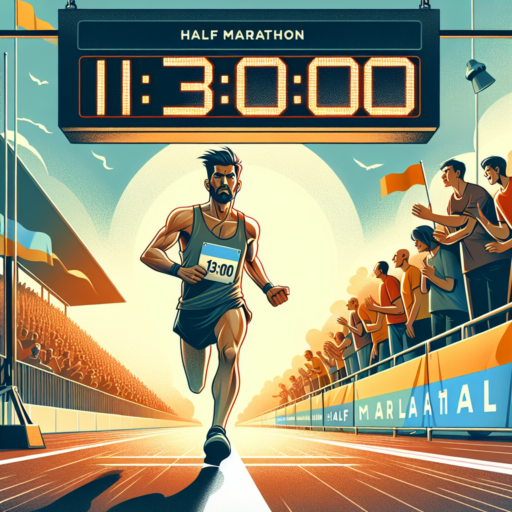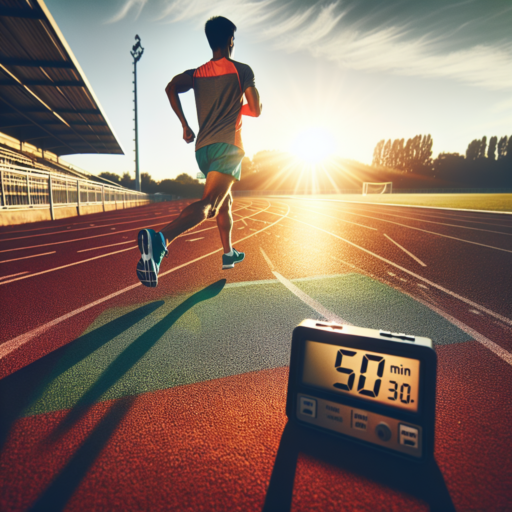What is a good resting heart rate for a marathon runner?
Identifying a good resting heart rate for a marathon runner is pivotal to optimizing endurance and overall performance. Generally, athletes in peak condition, particularly marathon runners, exhibit lower resting heart rates than the average person. This is attributed to the increased efficiency and strength of their hearts, which can pump a greater volume of blood with each beat, necessitating fewer beats per minute.
The typical resting heart rate for adults ranges from 60 to 100 beats per minute (bpm). However, for marathon runners, this number often falls into a lower spectrum. A good resting heart rate for these athletes usually lies between 40 and 60 bpm. This reduced rate not only signifies a highly efficient cardiovascular system but also contributes to a quicker recovery, better sleep, and a stronger ability to withstand high intensities of training.
It’s important to note that while aiming for a lower resting heart rate can be beneficial, marathon runners should also pay attention to their body’s responses and recovery needs. Monitoring daily heart rate variations can provide valuable insights into one’s fitness levels, potential overtraining, or even underlying health issues. Hence, maintaining a balance between achieving a low resting heart rate and ensuring it aligns well with one’s overall health and fitness goals is crucial for marathon runners.
Is a 190 heart rate bad while running?
When evaluating whether a 190 heart rate is bad while running, it’s essential to consider individual factors like age, fitness level, and personal health conditions. Generally, heart rate is a critical metric used to assess exercise intensity. Understanding your own body’s responses can help ensure you’re training effectively and safely.
For many, a heart rate of 190 beats per minute (bpm) during exercise may appear alarmingly high. Typically, maximum heart rate predictions are calculated by subtracting your age from 220. For instance, a 30-year-old’s estimated maximum heart rate would be around 190 bpm. Therefore, reaching this intensity can be considered pushing towards one’s limits, especially for casual runners or those new to exercise.
However, seasoned athletes often train at or near their maximum heart rate to increase endurance and performance. In such cases, a 190 bpm might not be unusual or harmful, but rather an indication of reaching peak exercise intensity. It’s crucial, however, to listen to your body and be aware of symptoms like dizziness, shortness of breath, or chest pain, as these could signal over-exertion or more serious health issues.
No se han encontrado productos.
Is 170 bpm bad when running?
Understanding how your heart reacts to exercise, including running, is critical for optimizing your workout and ensuring your health. A heart rate of 170 beats per minute (bpm) while running may raise questions about its safety and implications on your overall fitness. It’s important to consider individual fitness levels, age, and health condition when evaluating what a heart rate of 170 bpm signifies during a run.
For many individuals, especially those who are younger and in good physical condition, reaching a heart rate of 170 bpm during intense exercise might be within normal limits. This rate falls within the target heart rate zone for high-intensity exercise for many people, which is typically 70% to 85% of your maximum heart rate. The maximum heart rate is commonly calculated as 220 minus your age. Therefore, reaching 170 bpm could simply mean engaging in a vigorous workout, essential for improving cardiovascular fitness and endurance.
However, it is also crucial to consider the possibility of overexertion. Consistently registering a heart rate of 170 bpm or higher when running could indicate pushing your body too hard, especially if you experience symptoms like dizziness, shortness of breath, or chest pain. These signs should not be ignored as they could signal underlying health issues or the need for a more graduated approach to increasing exercise intensity.
What is kipchoge heart rate?
Eliud Kipchoge’s heart rate is a key factor in his remarkable endurance and running performance. This Olympic marathon champion and world record holder has an astonishing ability to maintain a steady and efficient heart rate even under the extreme conditions of a marathon. Kipchoge’s training and genetic makeup contribute to his heart’s ability to sustain such a performance without faltering.
During intense training sessions and actual marathon races, Kipchoge’s heart rate has been closely monitored. While specific numbers may vary depending on the source, it’s widely acknowledged that his heart rate during a marathon averages between 140 to 150 beats per minute (bpm). This rate is particularly impressive considering the pace and length of a marathon, showcasing his exceptional cardiovascular endurance.
In adapting to the demands of long-distance running, Kipchoge’s heart has likely undergone significant physiological adaptations. These include a larger left ventricle and a higher stroke volume, which enables his heart to pump a greater amount of blood with each beat, delivering more oxygen to his muscles efficiently. Such adaptations are critical for marathon runners, allowing them to sustain high levels of performance over the two-hour-long event.




